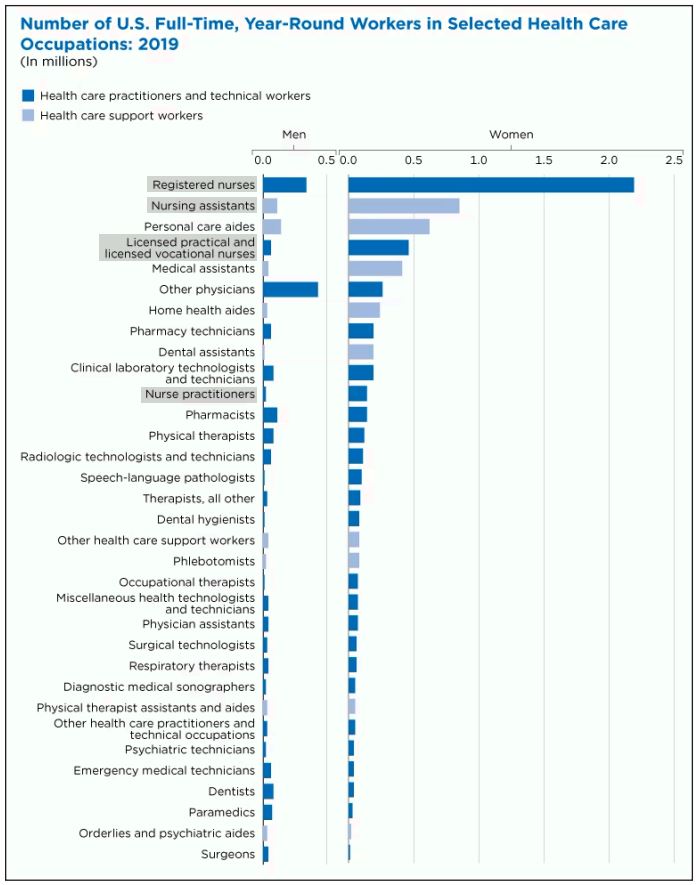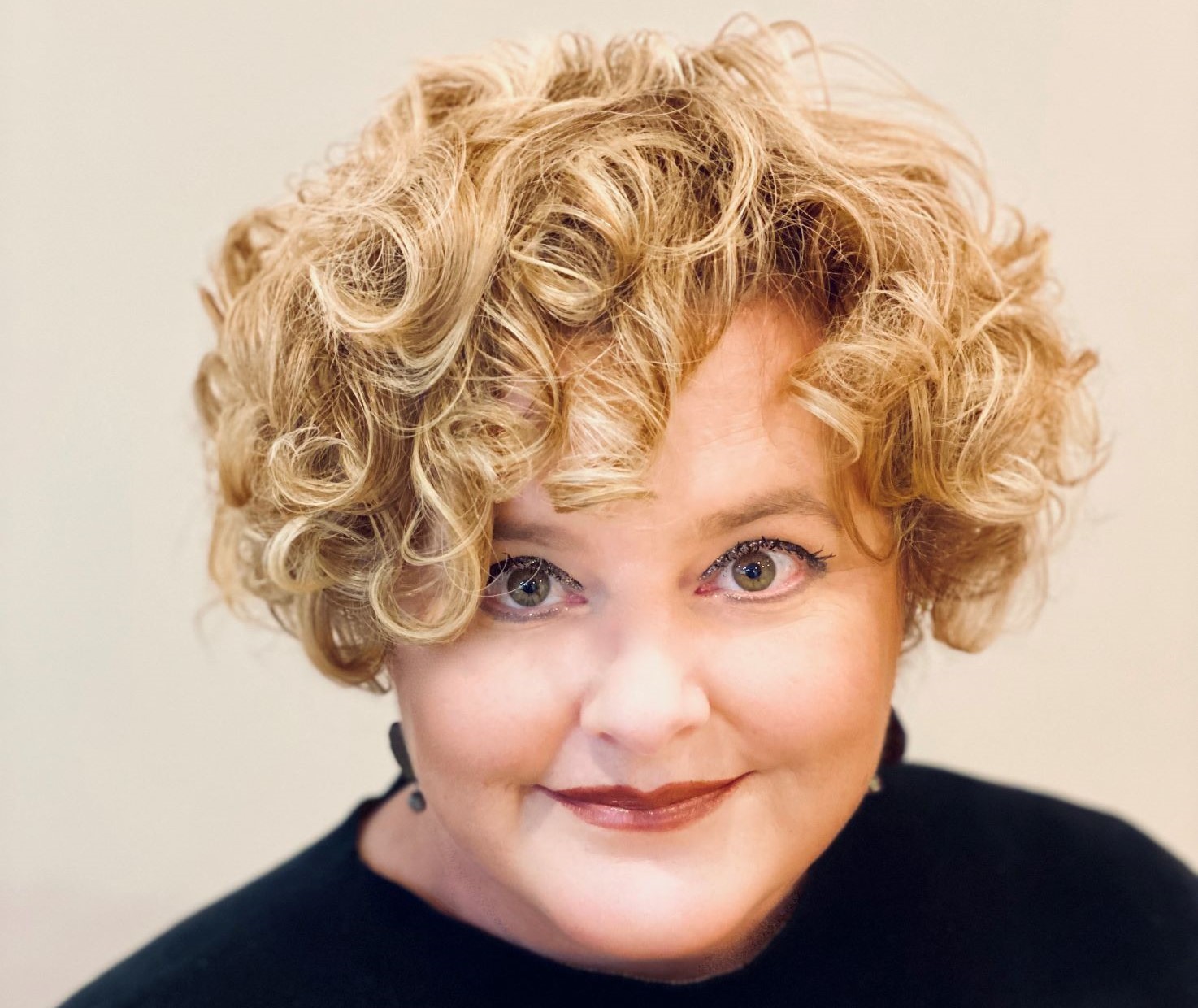Nursing is the largest health care workforce in the United States. As Director of the National Institute of Nursing Research (NINR), Shannon N. Zenk, Ph.D., M.P.H., R.N., FAAN, wants nurses’ perspectives included in research to end health disparities nationwide. Health equity has been a main focus throughout her career, and Dr. Zenk has brought that focus to her vision for NINR. She talked to NIH MedlinePlus Magazine about what shaped her interest in research and about major initiatives at NINR.
Would you tell us about your background and how you ended up at NINR?
Early in my career I worked as a nurse case manager. In that role, I would visit people in their homes to provide a wide variety of care, such as wound care, self-management, and medication adherence. But really, what I got out of that experience was what I observed in terms of the differences in the resources people had. This is one of the main things that shaped my way forward in research.
Some folks struggled with having the resources to promote and restore their health. Others had plenty of resources. There were dramatic differences in the home and community environments of the people I was visiting to provide care. It was difficult to talk to people about healthy eating, for example, when what they really needed was far more fundamental. They needed enough food to eat, housing, reliable electricity, and a safe environment. These types of experiences motivated me to go back to school and learn more about what I could do to help solve these problems. I wanted to help not only the patients I interacted with but also communities everywhere.
I had a number of experiences going through school, including in my Ph.D. program while spending time in communities in Detroit, that shaped the specific area of focus I started out with. We conducted some of the early work on food deserts in the United States. Since that time—that was more than 20 years ago—those results have been replicated around the country. We’ve also linked issues of access to food with health behaviors and obesity risk. That’s what got me started in research and in developing this really deep commitment to researching social determinants of health more generally.
I was happy with what I was doing. I had a long career in academia, mentoring and training nursing students and folks from other disciplines at every stage of their careers. I was approached about this opportunity [to be NINR Director]. As I learned more, it struck me as this amazing opportunity to shape science and advance areas where I thought nursing could be important. Chief among them is drawing on nursing’s expertise focused on people and on very holistic [treating the whole person and not just symptoms] and contextualized approaches to health.

Dr. Zenk is a fan of the Chicago Cubs and got her COVID-19 vaccine at Wrigley Field.
What is the role of a nurse or nurse researcher outside of a hospital or clinical setting?
We often think of nurses as being in hospitals and clinics, and those are certainly important settings where nurses practice. But nurses practice pretty much everywhere: schools and workplaces, homes, long-term care facilities, policy settings and justice settings, and in communities more generally around the globe—from urban to suburban to rural.
The scope of our practice extends from improving the health of individuals to that of an entire population. Nursing is fairly unique in terms of the health professions. We have always focused on people in the context of their lives and living conditions. We’ve always seen that as fundamental to improving population health and addressing health equity.

Health care occupations (2019)
In your own words, how would you describe the mission and focus of NINR?
We are committed to driving bold and innovative solutions to bring about the changes we need to improve the nation’s health. From the beginning, NINR has supported research to provide the scientific basis for practice as well as policy. In recent years we have been emphasizing nursing's unique perspective—what we bring as a health discipline to the research enterprise.
We revisited our mission and revealed a new strategic plan during National Nurses Month in May of 2022. The plan lays out our commitment to advancing health equity through research. The plan has five research “lenses”: health equity, social determinants of health, population and community health, prevention and health promotion, and systems and models of care. We started releasing funding opportunities aligned with the strategic plan as well as our first imperative under that plan, which is firearm injury prevention. That is an area we think would benefit from nursing and nursing science and the unique perspective and experience we bring.
What other research areas at NINR are you excited about?
We are a founding co-chair of the NIH program Community Partnerships to Advance Science for Society (ComPASS). ComPASS is an innovative program for NIH. It aims to fund community organizations to lead research [that is] designing and implementing structural interventions to reduce health disparities.
We are also partnering with NIH for Transformative Research to Address Health Disparities and Advance Health Equity. It’s supporting innovative translational research programs [which use data generated from research to directly benefit people] that are also aimed at preventing, reducing, or eliminating health disparities.
We helped put together a new research coordinating committee focused on social determinants of health. The goal is to accelerate this area of research across [NIH] for all diseases and conditions, stages of the life course, and populations.
As an institute, we’re beginning to move forward a variety of funding opportunities aligned with the strategic plan. One example of those is COVID-19-related food and housing policies and programs. I think many of us were concerned about the pandemic’s impact on social and economic factors and the possibilities of long-term effects on health disparities. But we also know there were a wide variety of programmatic and policy interventions put in place during the pandemic to lessen those effects. And we want to know all we can about the effectiveness of those interventions. We’re funding a number of studies under that initiative such as the effect of housing policies on substance use disorder treatment and overdose risk. Other examples are the effect of COVID-19 eviction prevention policies on racial inequalities and the use of acute care services as well as their costs.
There’s a lot of attention on maternal mortality and pregnancy outcomes nationally. How is NINR contributing to research on these issues?
We are concerned about the high rates of maternal mortality. It’s a concern among so many institutes at NIH. Last year we released a funding opportunity on intervention research to test new integrated models of health care that address structural inequities. We have a number of innovative projects across the country in this area such as the impact of integrating community-based patient navigation into maternal care for Black women and the effects of Medicaid policy interventions on racial equity in severe maternal morbidity.
This one is neat, too—the benefits of protective aspects of Black communities and using a strengths-based community care and mobile technology intervention to improve maternal wellness and reduce disparities. We released another version of that funding opportunity this winter.
That brings me to Implementing a Maternal health and PRegnancy Outcomes Vision for Everyone (IMPROVE). This NIH-wide initiative focuses on reducing preventable causes of maternal deaths and improving the health of people across the continuum: during pregnancy, during and after delivery, and all the way through post-partum. IMPROVE is concerned about addressing disparities in maternal morbidity and mortality, as well as other disproportionately impacted populations, such as women of advanced age and people with disabilities.
We’re doing our best as an institute and as a collaborator at NIH to come up with solutions to this area where we unfortunately see large health disparities and worsening outcomes.
What would you say to someone who is hesitant to enter the nursing profession due to reports of staff shortages or burnout?
At its core, nursing’s perspective is on health solutions for people in the context of their lives, living conditions, and really across the wide variety of settings where nurses practice. Our nation’s health depends on nurses. Nurses are the backbone of the health system. We need nurses, and we also need nurse scientists who can channel their expertise and energy into addressing these tough challenges we face as a nation and offering the perspective that only we can provide into solutions. [Nursing science] is a career path we would certainly want to encourage people to consider.
What are some of your favorite things to do when you’re not working?
I’m really into Chicago sports, so I watch the Bulls, the Bears, and the Cubs. That’s one thing I do to unwind and distract myself from the work of the day. In fact, I’m such a big Cubs fan that I got my COVID-19 vaccine at Wrigley Field!







